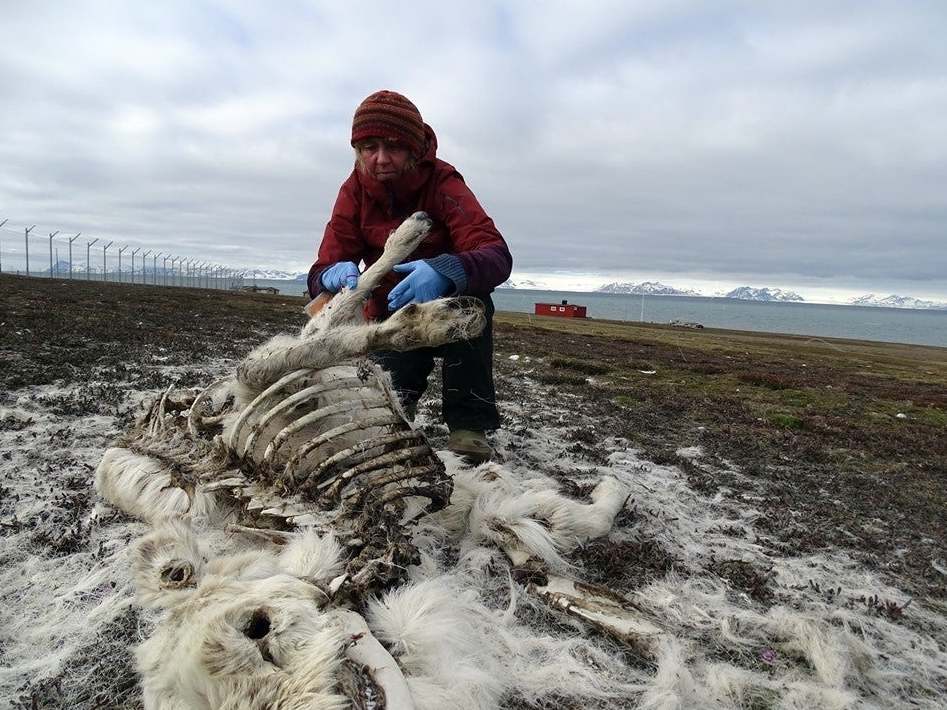Hundreds of reindeer starve to death on Arctic islands ‘due to climate change’
Researchers have never found so many carcasses in Svalbard in 40 years of monitoring animal’s population

Your support helps us to tell the story
From reproductive rights to climate change to Big Tech, The Independent is on the ground when the story is developing. Whether it's investigating the financials of Elon Musk's pro-Trump PAC or producing our latest documentary, 'The A Word', which shines a light on the American women fighting for reproductive rights, we know how important it is to parse out the facts from the messaging.
At such a critical moment in US history, we need reporters on the ground. Your donation allows us to keep sending journalists to speak to both sides of the story.
The Independent is trusted by Americans across the entire political spectrum. And unlike many other quality news outlets, we choose not to lock Americans out of our reporting and analysis with paywalls. We believe quality journalism should be available to everyone, paid for by those who can afford it.
Your support makes all the difference.More than 200 reindeer have died of starvation on the Norwegian archipelago of Svalbard, with scientists blaming their deaths on climate change.
The wild deer carcasses were found on the Arctic islands this summer by researchers from the Norwegian Polar Institute (NPI), which said it had never logged so many deaths at once in 40 years of monitoring the animals’ population level.
“It’s scary to find so many dead animals,” project leader Ashild Onvik Pedersen told state broadcaster NRK. “This is an example of how climate change affects nature. It is just sad.”
Svalbard’s capital Longyearbyen, the northernmost town on earth, is thought to be warming quicker than any other settlement on the planet, climate scientists warned earlier this year.
The milder temperatures in the region led to unusually heavy rainfall in December, leaving a thick layer of ice when the precipitation froze. This meant the reindeer could not dig through the hardened tundra to reach the vegetation they graze on in their usual pastures, the NPI said.
Svalbard’s reindeer have been observed eating seaweed and kelp when food is scarce, but these are less nutritious and cause them stomach problems.
A relatively high number of calves born last year increased the death toll, as the youngest and weakest are often the first to die in harsh conditions.
“Some of the mortality is natural because there were so many calves last year. But the large number we see now is due to heavy rain, which is due to global warming,” said Ms Onvik Pedersen.
A team of three scientists spent 10 weeks investigating population of the Svalbard reindeer earlier this year.
Researchers warned the decline of reindeer would cause unwanted plant species, currently kept in check by the animals’ grazing, to spread across Arctic ecosystems in Europe, Asia and North America.
Arctic reindeer and caribou populations have declined 56 per cent in the last two decades, a report by the National Oceanic and Atmospheric Administration said last year. The report said food security was partly to blame for was partly to blame for falling herd numbers, while warmer summers also could also put the animals at greater risk of diseases spread by flies and parasites.
The average temperature in Longyearbyen has risen by 3.7C since 1900, more than three times the global average increase of about 1C.
In 2016, the entrance to the town’s “Doomsday” seed vault – which stores specimens of almost all the world’s seeds – was flooded following heavy rainfall.
Join our commenting forum
Join thought-provoking conversations, follow other Independent readers and see their replies
Comments